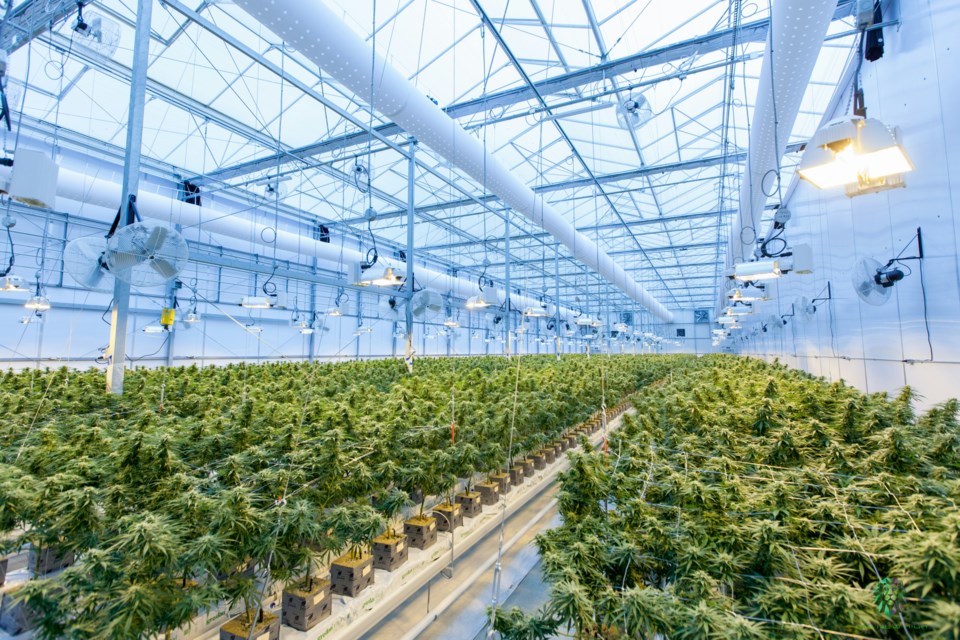B.C. cannabis consumers could turn back to the black market if rising prices from supply-chain disruptions persist, says one retail expert.
Global trade disruption is rattling industry supply chains, sending prices of packaging materials and cultivation equipment upward, DIG360 Consulting Ltd. executive retail advisor Rick Bohonis said in an email.
“It is troubling as cannabis margins are thin and there may no wiggle room for even marginal price movement,” he said.
“The concern in the legal cannabis world is that consumers—already complaining of high prices—might look to the grey market again."
The Trump administration has imposed wide-reaching 25 per cent tariffs on Canadian goods that don’t comply with the CUSMA trade deal, and recently doubled tariffs on Canadian steel and aluminum to 50 per cent.
The Liberal government has imposed tariffs on $30 billion worth of American goods, including steel and aluminum products, and large appliances.
Canada has also imposed tariffs on Chinese steel and aluminum.
The cannabis product itself is not being impacted, as imports and exports between Canada and the U.S. are not allowed, said Bohonis. But tariffs are affecting the cost of ancillary products like mylar packaging, aluminum cans, batteries and child-resistant containers imported from China, he added.
This industry is no different than others in how it deals with rising costs as producers decide whether to eat the increased costs or pass them on to consumers, Bohonis said.
Rising costs for equipment and supplies amid trade uncertainty is a concern for Margaret Brodie, CEO of Vancouver-based cannabis producer Rubicon Organics Inc. (TSX-V:ROMJ).
She said Rubicon is navigating a rise in costs of equipment, packaging and other hardware products. These products make up around 10 per cent of the company’s expenditures, but rising costs are still significant, Brodie said. The company’s biggest expenditures remain labour costs and local products.
“It’s the uncertainty that is challenging,” said Brodie, who’s also a board member of the Cannabis Council of Canada.
B.C. wholesale cannabis sales during the first three months of 2025 were $144 million, up nine per cent from $132.1 million for the same period in 2024, according to a quarterly sales report from the BC Liquor Distribution Branch (BCLDB).
There were 38 million grams of cannabis sold in the first three months of 2025, which is a 12.8 per cent increase from the 33.7 million grams sold during the same period a year earlier.
Some local producers have been sheltered from global trade disruption.
Cowichan Valley-based Great Gardener Farms Inc. hasn’t purchased equipment lately, and its packaging is provided by a B.C. company that manufactures locally, said CEO Kirk Tousaw.
But he said uncertainty owing to trade disruptions isn’t helping the sector’s already challenging state.
Rubicon’s Brodie said the Canadian cannabis sector is already overtaxed and overregulated amid tariffs. This makes it challenging to compete with the black market, she said, estimating that 20-40 per cent of cannabis consumers still buy from that market.
Brodie also pointed to a drop in cannabis prices, partly from oversupply.
B.C. cannabis wholesale prices during the first three months of 2025 were $3.8 per gram, a 2.6 per cent decrease compared with the same period a year earlier, according to the BCLDB. The price of dried flower also decreased by 1.9 per cent year-over-year, dropping to $3.15 per gram.
It’s not supply chain disruptions that Brodie is most concerned about, but shifts in consumer spending caused by inflation. The possibility of a recession in Canada can also make it difficult to attract investment, she said, noting banks have taken a conservative stance when lending money.
The cannabis industry is a difficult sector to be in at the moment, said Tousaw.
“We're not revenue positive," he said, referring to Great Gardener Farms. "It's been a slog meeting all of the regulatory requirements necessary to operate.”
Industry headwinds have led companies to adjust, and while some cannabis companies have diversified and pivoted to exporting a portion of their products, Rubicon has stayed focused on the premium Canadian consumer, said Brodie.
“In the future, we will be going internationally,” she said, adding that it’s challenging to diversify import partners because of a lack of alternatives.
Canada exported 79,300 kilograms of dried cannabis in 2023 and 109,000 kilograms in 2024 up to September, according to medical cannabis data from Health Canada.
A total of 8,651 litres of cannabis oil were also exported in 2023, as well as 13,604 litres in 2024 up to September.
Meanwhile, Tousaw said Great Gardener Farms is looking to reach other provincial markets amid trade uncertainties. The company is working with a processor in Manitoba.
But different provinces have their own regulatory pathways, which are difficult to navigate, Tousaw said.



